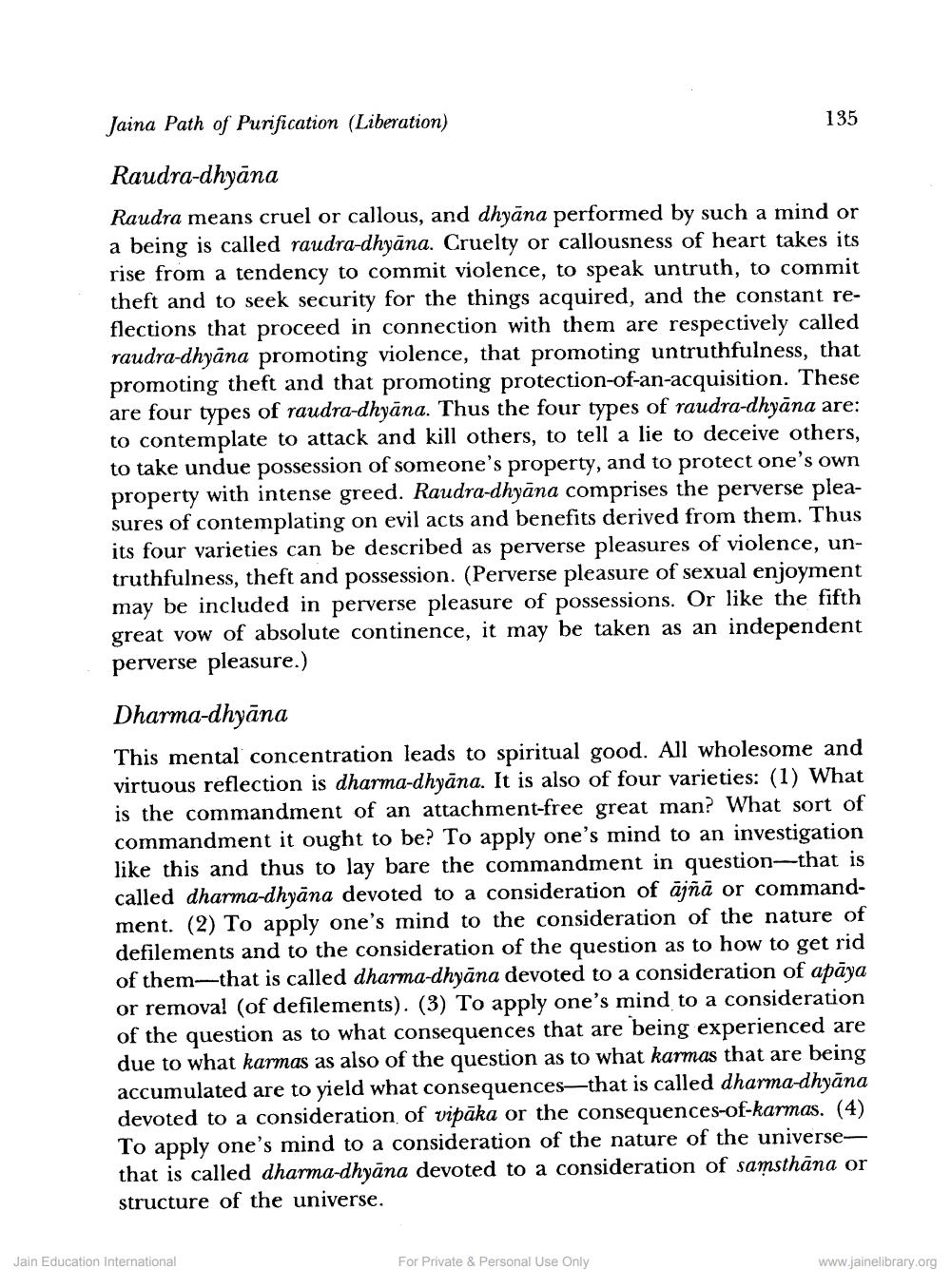________________
Jaina Path of Purification (Liberation)
135
Raudra-dhyāna Raudra means cruel or callous, and dhyāna performed by such a mind or a being is called raudra-dhyāna. Cruelty or callousness of heart takes its rise from a tendency to commit violence, to speak untruth, to commit theft and to seek security for the things acquired, and the constant reflections that proceed in connection with them are respectively called raudra-dhyāna promoting violence, that promoting untruthfulness, that promoting theft and that promoting protection-of-an-acquisition. These are four types of raudra-dhyāna. Thus the four types of raudra-dhyāna are: to contemplate to attack and kill others, to tell a lie to deceive others, to take undue possession of someone's property, and to protect one's own property with intense greed. Raudra-dhyāna comprises the perverse pleasures of contemplating on evil acts and benefits derived from them. Thus its four varieties can be described as perverse pleasures of violence, untruthfulness, theft and possession. (Perverse pleasure of sexual enjoyment may be included in perverse pleasure of possessions. Or like the fifth great vow of absolute continence, it may be taken as an independent perverse pleasure.)
Dharma-dhyāna This mental concentration leads to spiritual good. All wholesome and virtuous reflection is dharma-dhyāna. It is also of four varieties: (1) What is the commandment of an attachment-free great man? What sort of commandment it ought to be? To apply one's mind to an investigation like this and thus to lay bare the commandment in question—that is called dharma-dhyāna devoted to a consideration of ajñā or commandment. (2) To apply one's mind to the consideration of the nature of defilements and to the consideration of the question as to how to get rid of them-that is called dharma-dhyāna devoted to a consideration of apāya or removal (of defilements). (3) To apply one's mind to a consideration of the question as to what consequences that are being experienced are due to what karmas as also of the question as to what karmas that are being accumulated are to yield what consequences—that is called dharma-dhyāna devoted to a consideration of vipāka or the consequences-of-karmas. (4) To apply one's mind to a consideration of the nature of the universethat is called dharma-dhyāna devoted to a consideration of samsthāna or structure of the universe.
Jain Education International
For Private & Personal Use Only
www.jainelibrary.org




